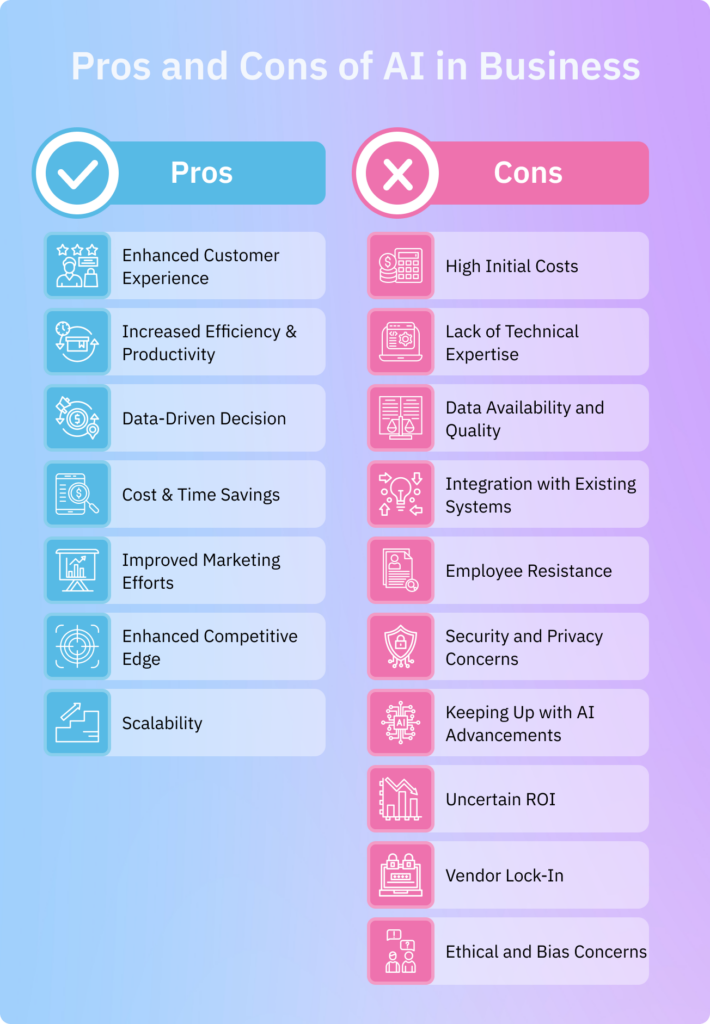Discover the Power of Affordable AI for Small Business

Estimated Reading Time: 7 minutes
Key Takeaways:
- AI can significantly lower costs and increase efficiency for small businesses.
- Various affordable AI tools are available that can be easily implemented without high upfront costs.
- Real-world examples illustrate successful AI integration across different sectors.
In an era where technology continuously reshapes business landscapes, Artificial Intelligence (AI) has emerged as a pivotal frontier. Notably, AI's once-prohibitive cost barrier has dwindled, making it an accessible asset for small businesses looking to elevate their operations. This transformative shift has enabled small firms to not only survive but thrive by injecting smart automation into their daily processes.
With nearly a quarter of small enterprises now harnessing AI, the enhancements in efficiency, particularly in marketing and customer engagement, are tangible. Explore how AI is impacting small businesses at Litslink.
When discussing the benefits of AI, the Return on Investment (ROI) often tops the list. For small businesses, the adoption of AI technologies translates to an average cost savings of 15.2% and revenue boosts of about 15.8%. Moreover, AI-driven automation can ramp up productivity by up to 40%, allowing staff to focus on more strategic tasks while AI handles the routine. Amidst these promising figures, an overwhelming 91% of SMBs are optimistic that AI will propel their growth, echoing the profound fiscal impacts of this technology. More details at Charcap.
The benefits of integrating AI into small business operations extend far beyond just financial gains:
- Operational Efficiency: A striking 82% of companies report heightened operational efficiency thanks to AI.
- Competitive Edge: About 77% of small businesses state that AI has leveled the playing field, allowing them to compete more aggressively against larger counterparts.
- Cost Management: With AI, routine customer queries can be automated up to 70%, drastically reducing workload and operational costs. Discover the best AI solutions for small businesses at Quidget.
For small businesses wishing to explore AI, numerous budget-friendly tools are available:
- Customer Service: Platforms like Chatfuel and MobileMonkey revolutionize customer interactions with automated responses.
- Marketing Automation: HubSpot offers AI-enhanced capabilities to streamline marketing efforts without manual input.
- Task Automation: Zapier facilitates automation between apps, optimizing workflow efficiency.
- Content Creation and Management: Tools like Mailmodo for email marketing, ChatGPT for automated content generation, and Grammarly for writing assistance are proving invaluable. Explore these platforms at Mailmodo and OpenAI.
The investment in AI can range widely, with 69% of businesses spending between $50 to $10,000 annually. Monthly expenditures also vary, with a significant number of firms paying between $100 to $5,000 on AI solutions. Moreover, businesses can opt for services billed hourly, typically ranging from $25 to $250, catering to varying budgets and needs. Numerous AI platforms now offer tiered pricing and pay-as-you-go options, making them accessible to businesses regardless of size. More insights on AI costs at FinancesOnline.
For small businesses, initiating AI adoption does not have to be costly:
- Scaling: Begin with small, manageable implementations and scale as ROI becomes apparent.
- Tool Selection: Utilize low-cost or free tools to minimize initial outlays.
- Cloud-based Solutions: Opt for cloud-based options to avoid heavy upfront hardware investments. Detailed cost analysis available at EverEfficient.
Numerous small companies have reaped substantial benefits from cost-effective AI solutions:
- A local bakery reduced manual inventory management by 70% and accurately forecasted demand with a 95% accuracy rate.
- A law practice improved appointment scheduling efficiency by 50% and accelerated document processing by threefold using AI. Further reading at Litslink.
Assessing AI's impact involves several metrics:
- Customer Satisfaction and Conversion Rates: Monitor improvements in customer interactions and sales conversions.
- Productivity and Time Savings: Evaluate how AI has streamlined operations and reduced labor hours.
- Cost Efficiency: Analyze reductions in operational costs, particularly in customer service and inventory management. More on cost analysis at EverEfficient.
The future of AI in small businesses is marked by increasing accessibility and enhanced integration with existing tools. The rise of no-code AI platforms is particularly transformative, offering robust AI functionalities without the need for deep technical expertise. Dive deeper into future AI trends for small businesses at Litslink.
Conclusion: Leveraging AI for Maximum Business Advantage
AI is not just a trend; it's a transformative tool that small businesses must harness to stay competitive and efficient. By starting with focused, manageable implementations, small businesses can significantly benefit from AI without the daunting expenses. As AI becomes more accessible, it's poised to become a staple in small business operations, driving growth and innovation. Harness the potential of affordable AI and transform your business operations for a robust competitive edge.




